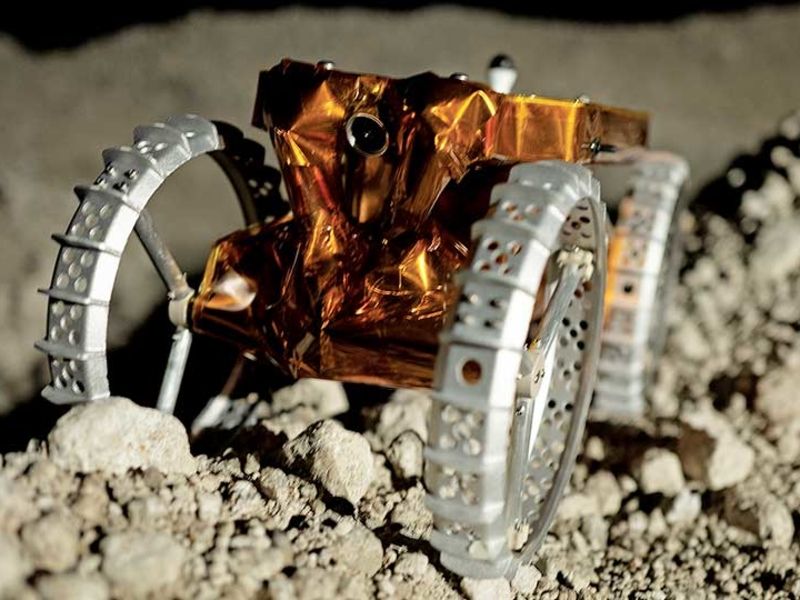
German megasupplier Bosch, which has long been establishing its expertise in artificial intelligence, is contributing to a few NASA projects that show just how much life in space and the auto world can converge.
Bosch, alongside space robotics company Astrobotic Technology Inc., the University of Washington, wireless charging provider WiBotic and NASA’S Glenn Research Center, have partnered on a project to intelligently navigate and wirelessly charge shoebox-sized robots on the moon.
The project — awarded $5.8 million through NASA’s Tipping Point program — aims to develop a precise, autonomous navigation system that will help Astrobotic’s CubeRover robots locate wireless chargers during a lunar mission. And it’s looking to do so for a demonstration by mid-2023.
“Navigating a robot on the moon is not the same as navigating a robotic vacuum through your home or navigating a self-driving car on the road,” Samarjit Das, leader of the intelligent Internet of Things group at Bosch Research, said in a November statement.
Think: a less than five-pound version of Wall-E that can use artificial intelligence to find its way to its own charger, all while navigating its harsh and unpredictable lunar surroundings.
Bosch previously partnered with Astro- botic to develop SoundSee, a module that uses microphones and machine learning to analyze audio data, with NASA. SoundSee aimed to analyze sounds on the International Space Station — Bosch’s first deployment there — to gauge system health.
NASA’s Mars helicopter, Ingenuity, even has a bit of the global automotive supplier aboard. Two of Bosch’s BMI160 sensors have been used for the NASA Mars mission this year.
The sensor collects data on how fast, and in which direction, Ingenuity is traveling — and supports the helicopter’s flight stability.
Some might even say the ways in which auto industry expertise can apply to aerospace are pretty out of this world.